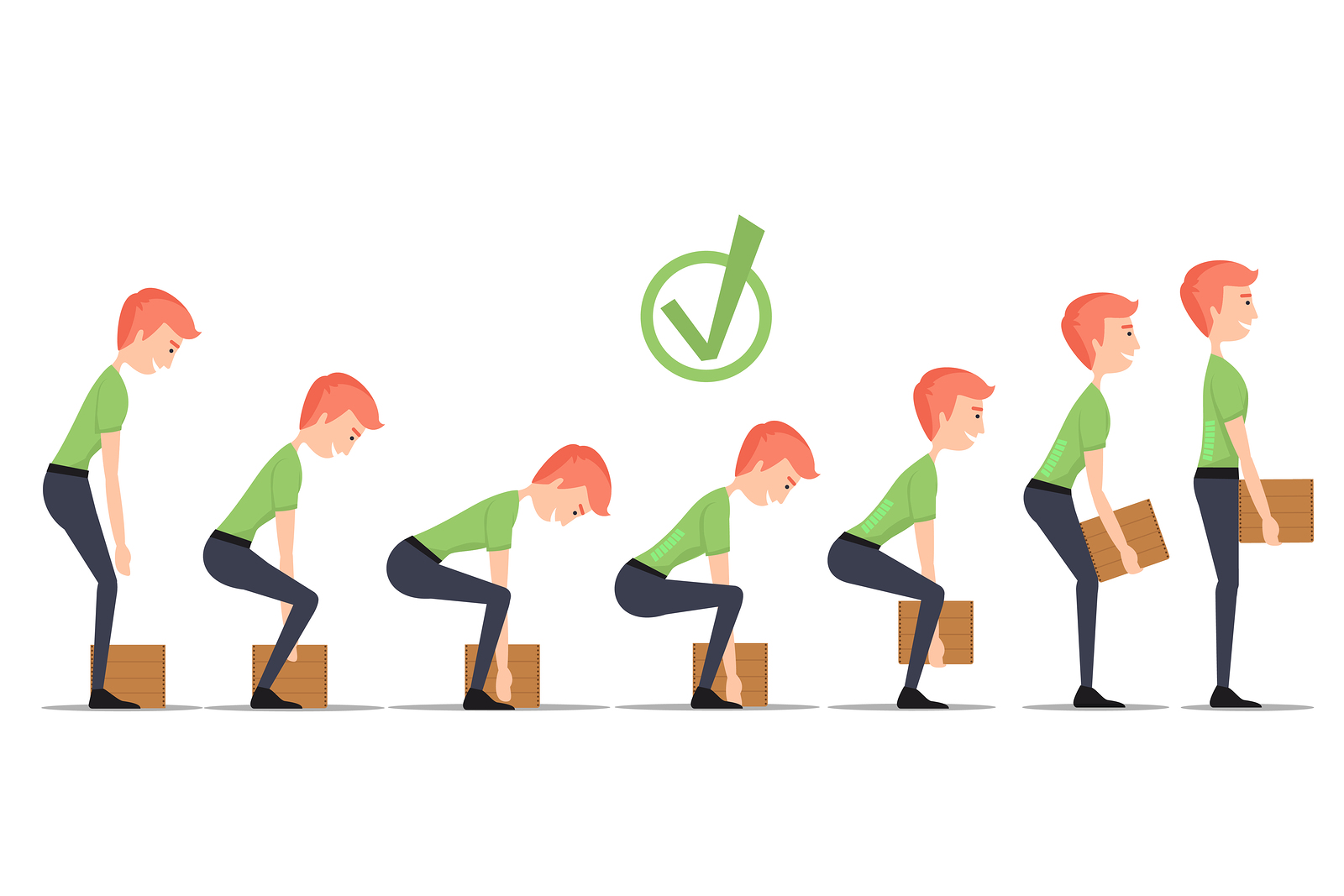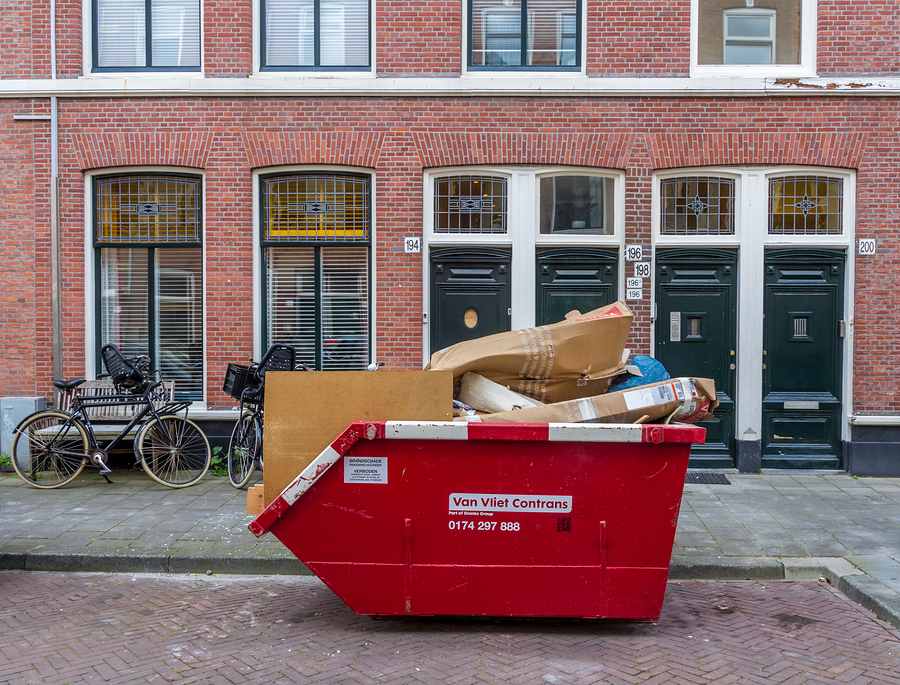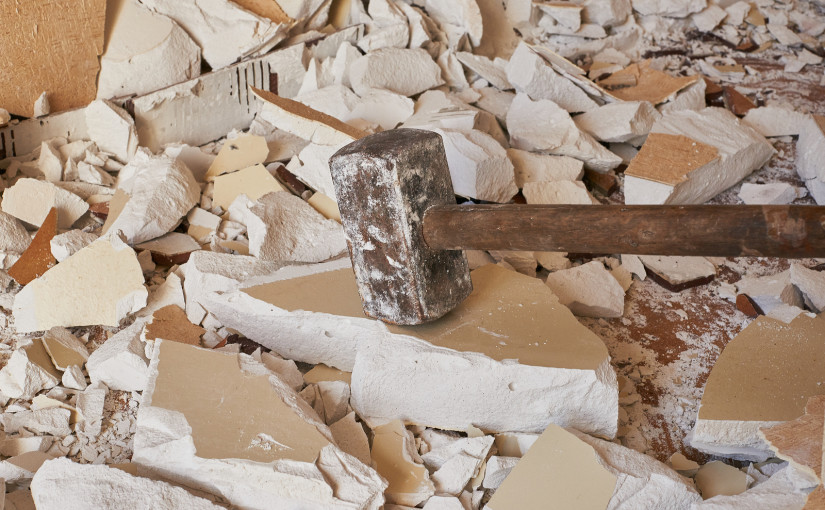Skip hire safety is always the first priority when hiring a skip.
A skip is a large metal item that gradually gets heavier when you fill it. Most businesses that offer skip hire have strict health and safety rules for commercial skip hire — but have you considered domestic skip hire?
Before you hire a skip from us, we recommend reviewing some of the essential safety tips to ensure you are using your skip correctly and keep you safe from any harm when hiring a skip. Accidents involving a skip are very rare due to the safety precautions in place, but this doesn’t mean they can’t happen.
Preparing for the skip delivery
When preparing for the skip delivery, always consider where you want the skip to be placed. The chosen spot should be a flat area with stable, hard ground. Skip safety should always be considered when preparing for skip delivery.
If you are concerned about the surface, we can provide wood patterns to protect your driveway from skip damage. Just let us know before so we can prepare for this. This area also needs to be somewhere accessible for the skip lorry to be able to place the skip.
Things to consider before your skip delivery
There are some factors you should consider before booking your skip delivery
- Avoid placing your skip under trees or bushes to reduce any potential fire risks.
- Clear your chosen skip area of any litter or other obstacles.
- If your skip doesn’t fit on your private property, it must be on a public road. In this case, you will require a skip license and possibly safety equipment such as skip safety lights.
- Consider if you need an enclosed skip for protecting the contents or a drop-down skip for easier access when moving heavy and delicate waste such as soil or rubble.
During the skip delivery
The delivering team will know how to safely deliver your skip. However, there are some things you might also want to take care of during the delivery:
- Provide clear direct instructions of where to place the skip.
- Clear the area of pets, young children, and any other people, so the skip lorry can safely deliver your skip.
- Don’t be tempted to attempt to move your skip once it has been placed — if a problem arises with the placement, please get in touch with us about it. Moving it yourself could damage the skip or your property or leave you with an injury you could have avoided.
Loading the skip
When loading your skip, always consider skip loader safety. There are a few things you can do to ensure you are loading your skip safely to reduce any unwanted injuries or accidents:
- Don’t try to carry anything too heavy or bulky — always get help when it’s needed.
- Remember to lift heavy items by bending your knees and keeping your back straight, to minimize the risk of injury.
- Be careful not to trap your fingers when loading your skip.
- As far as possible, place heavier and bulkier items at the bottom of the skip, and lighter items on the top — this keeps the skip steady and means there will be less chance of movement within.
- Avoid having an overfilled skip if you can as this will make it safer for everyone.

Contents of the skip
When it comes to the contents of the skip, you want to ensure everything fits in nicely and is suitable to be disposed of. Some things cannot be put in a skip, so it may help to do some research first. It’s always best to check the rules of what you can put into your skip hire to avoid any complications.
Some ways to do this include:
- Be extra cautious when loading heavy, sharp or broken items into your skip.
- Neighbours or passers-by may be tempted to add items to your skip — don’t let them — they will be taking up precious space in your skip but also, they could add something hazardous. If you live in a highly populated area, cover your skip overnight to help remove temptation. We can supply secure, enclosed skips with locks if required.
- Please take a look at our guide to what you can and can’t put in a skip and avoid placing any banned items in your skip — examples include batteries, tyres, and asbestos.
Don’t be tempted to overfill

If you’re working on quite a big project, you can experience a large amount of waste ready to be thrown out and it can be tempting to overfill your skip when it gets too much. However, you must know that the removal of an overfilled skip by skip hire companies is against the law with good reason — it isn’t safe to remove it without a risk.
- Please do not fill your skip past the top or sides as we won’t be able to remove it, and you will be charged extra for our team to remove the excess waste safely.
- One way to avoid this is to arrange for your skip to be collected as soon as it’s full — this will remove temptation for neighbors and minimize the risk of fire.
Once you have considered these important factors, you’re all ready to hire a skip safely and you can begin your clear our or renovation project with the convenience of a skip on your driveway.
Finally, once your skip is all full, arrange for it to be collected as soon as possible and do not overfill it!
Featured image credit: Studio_3321
